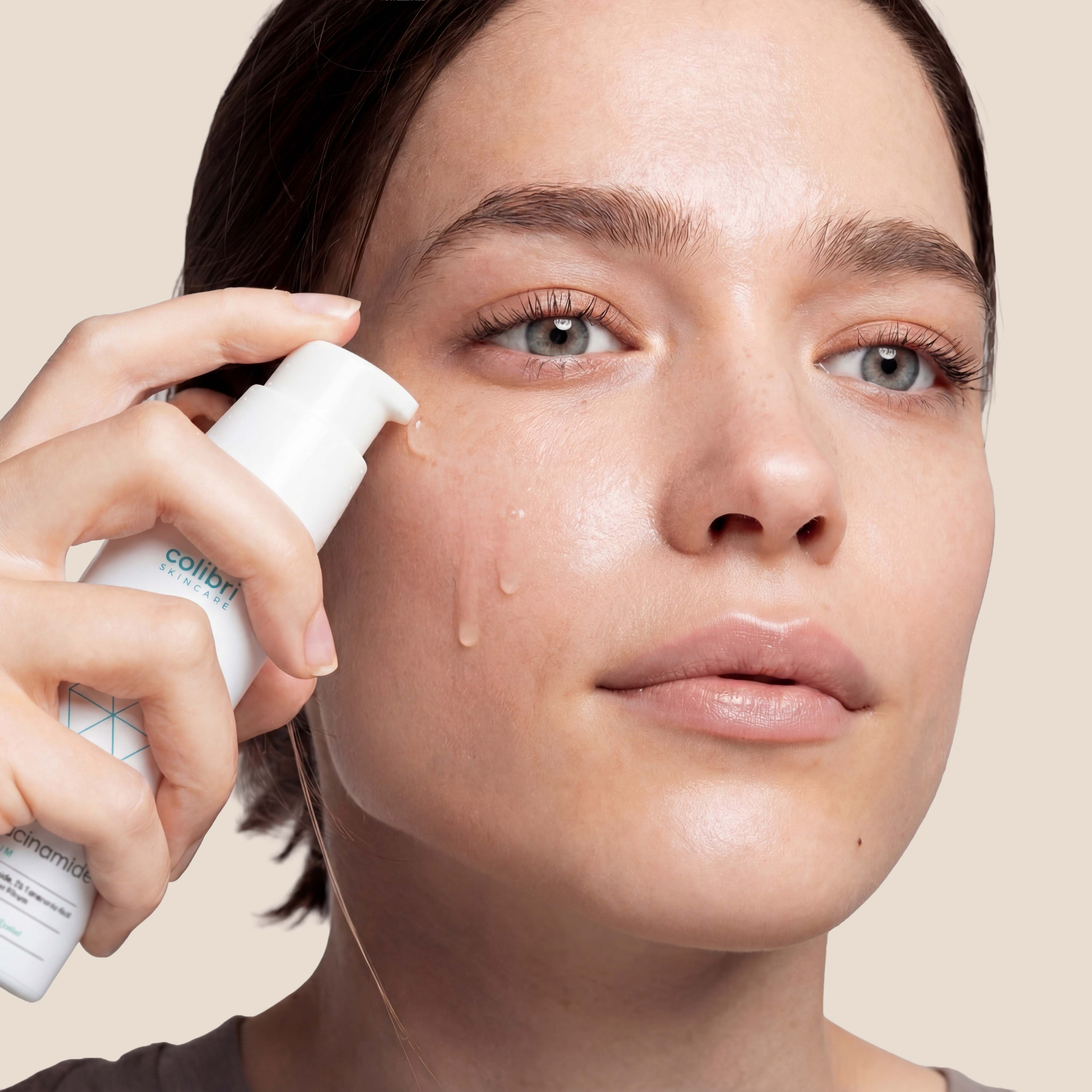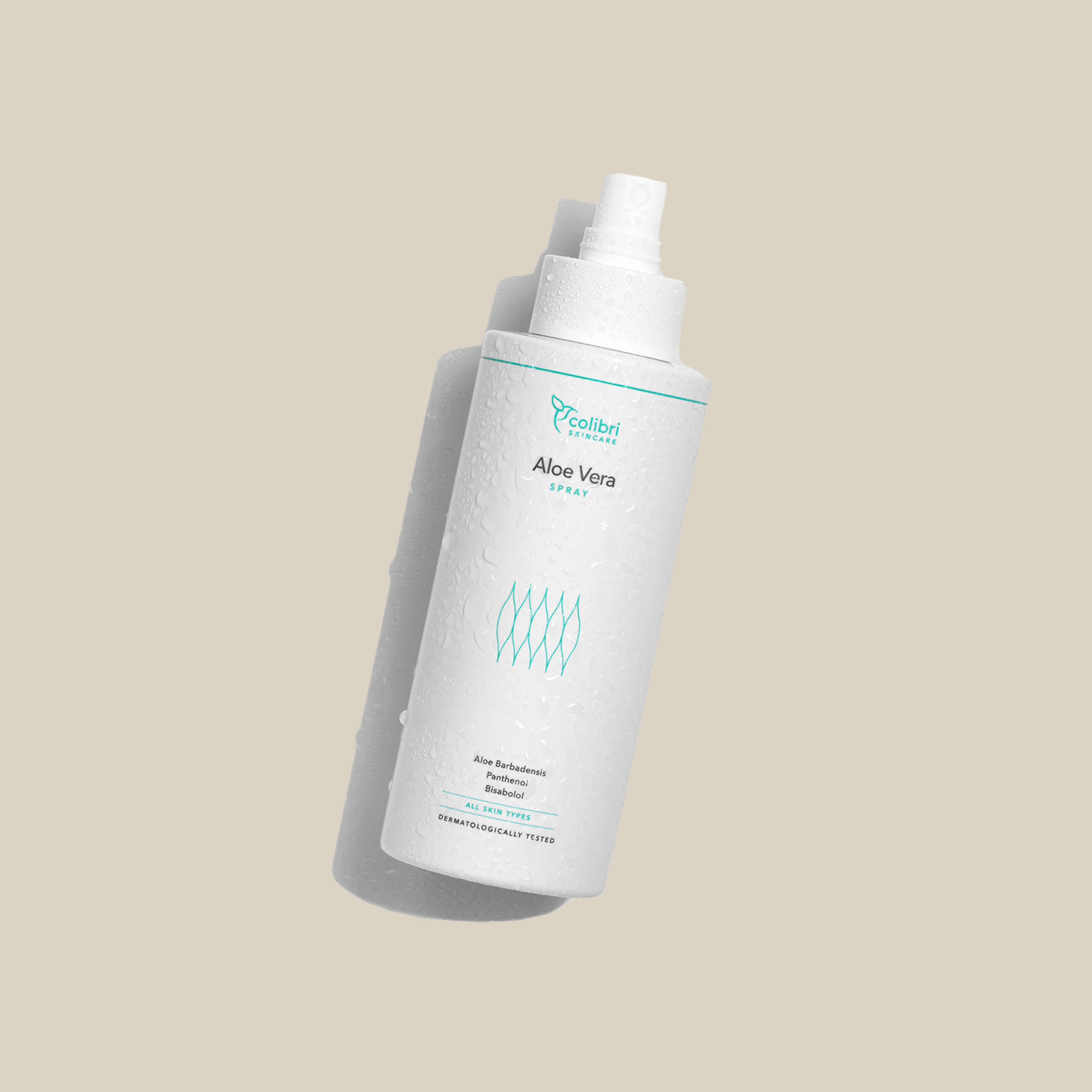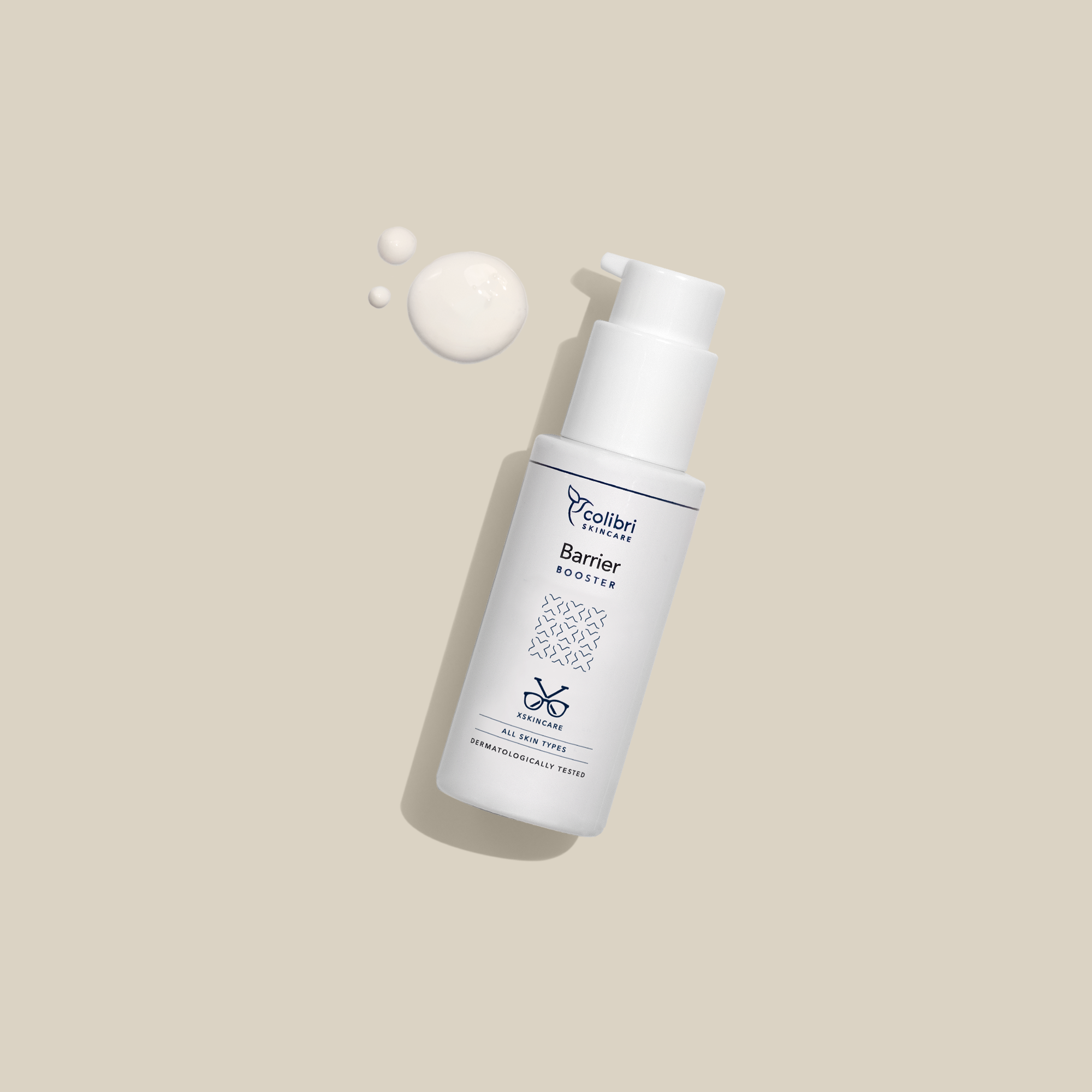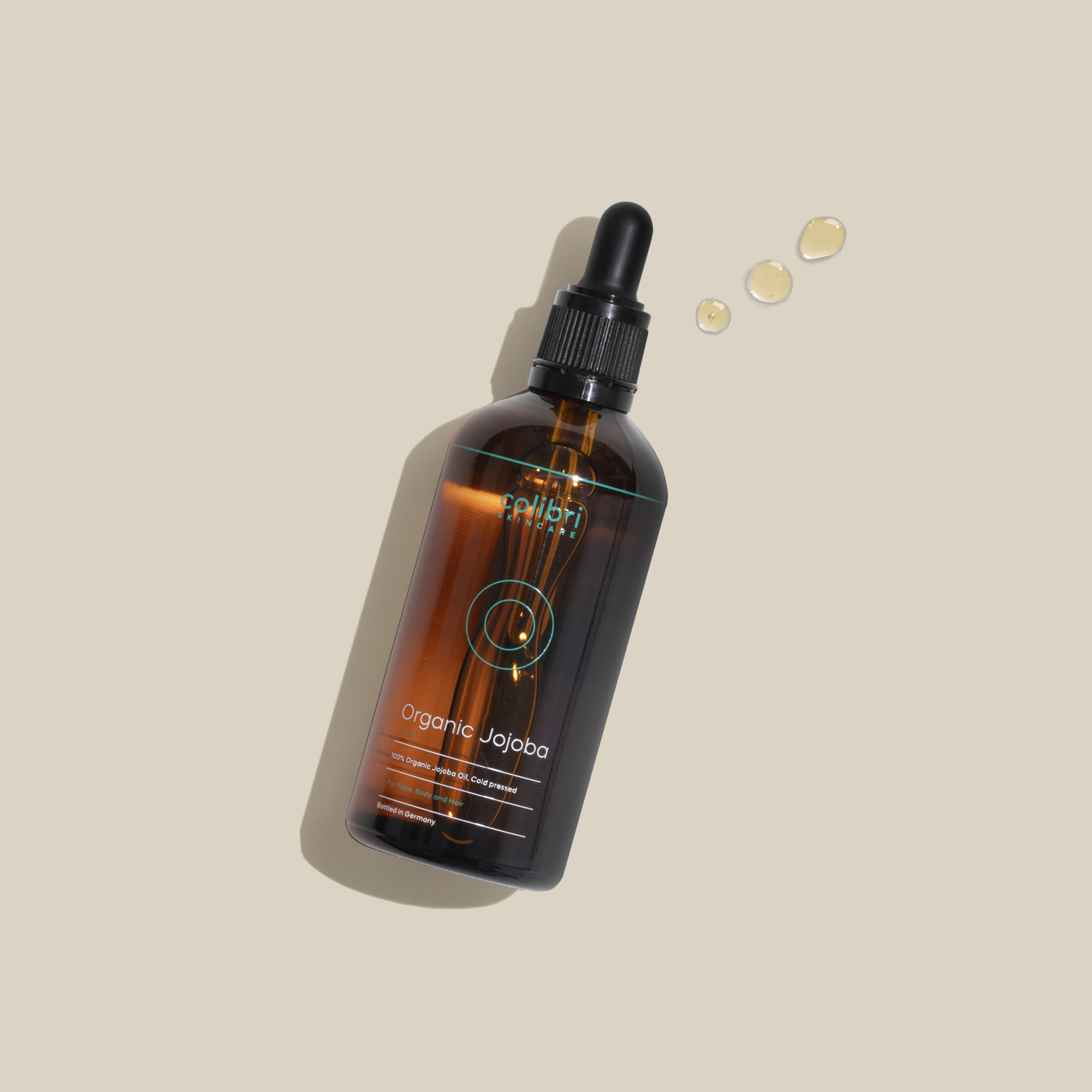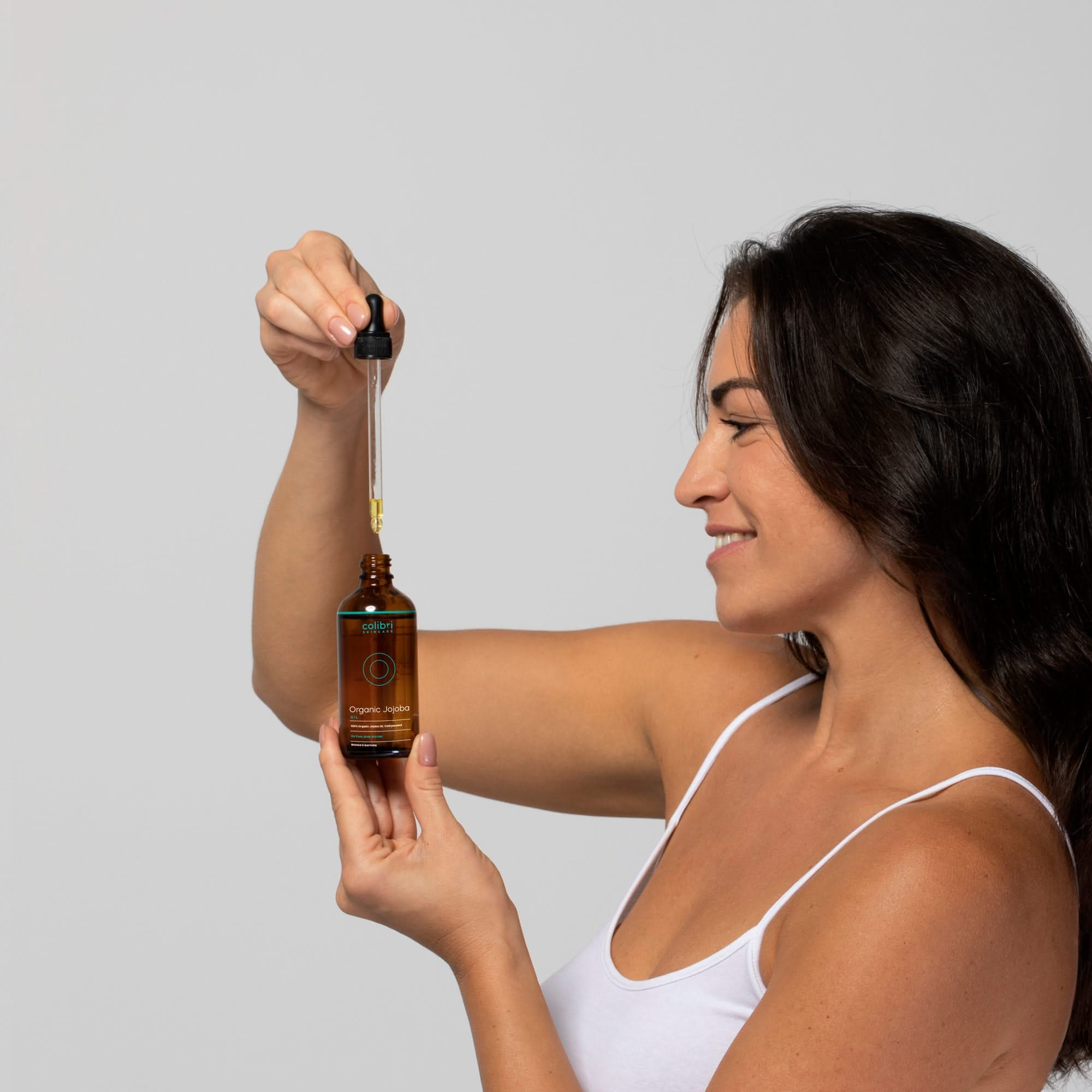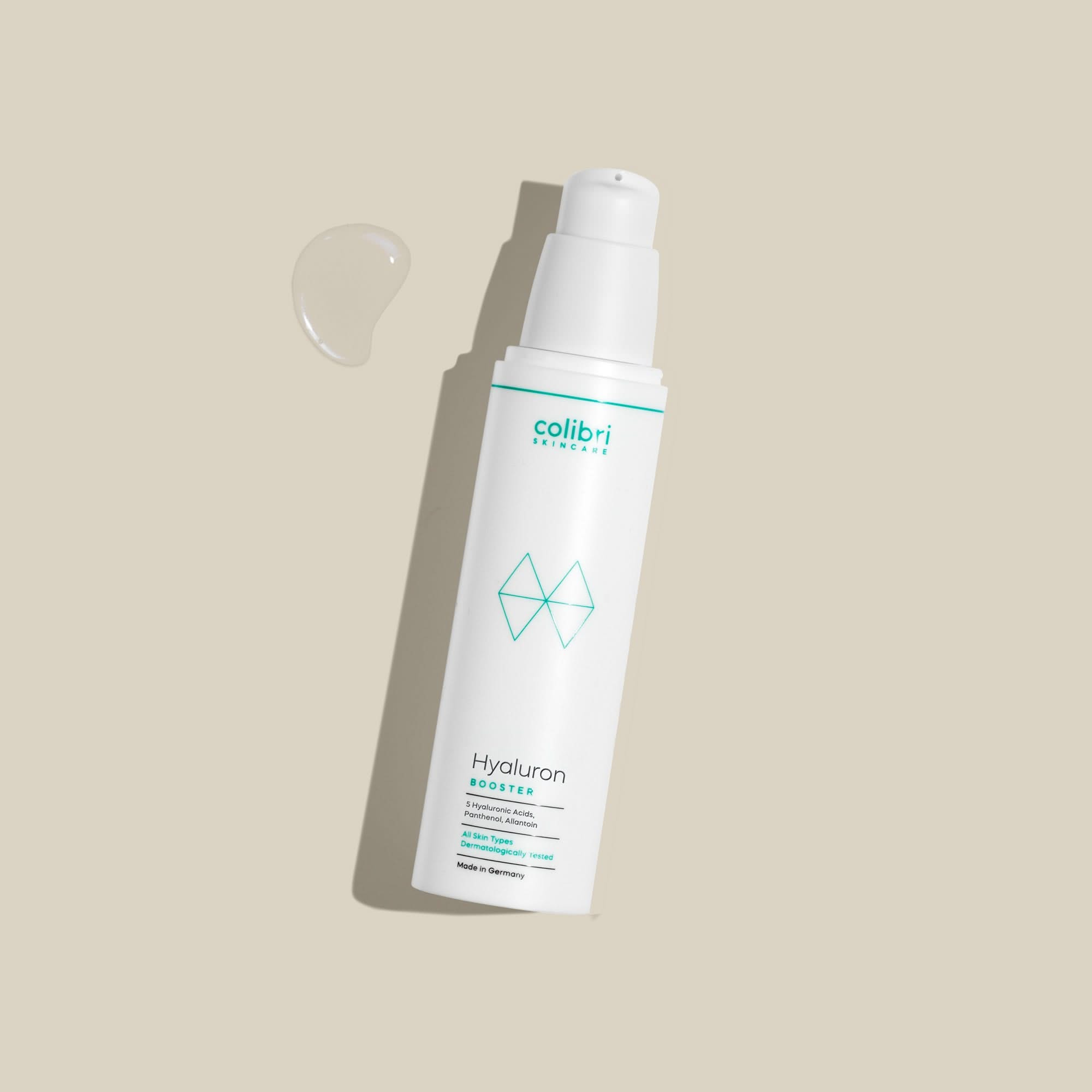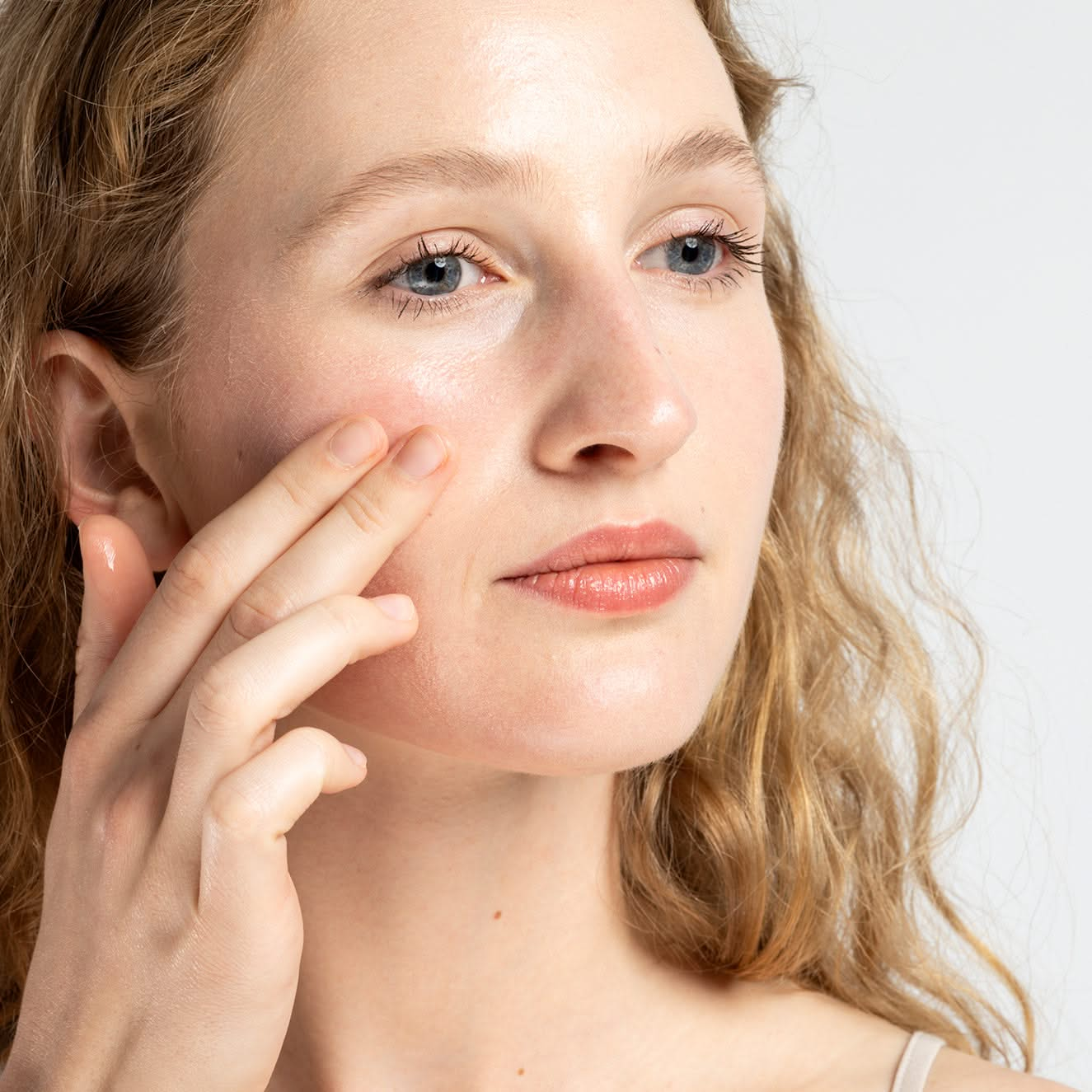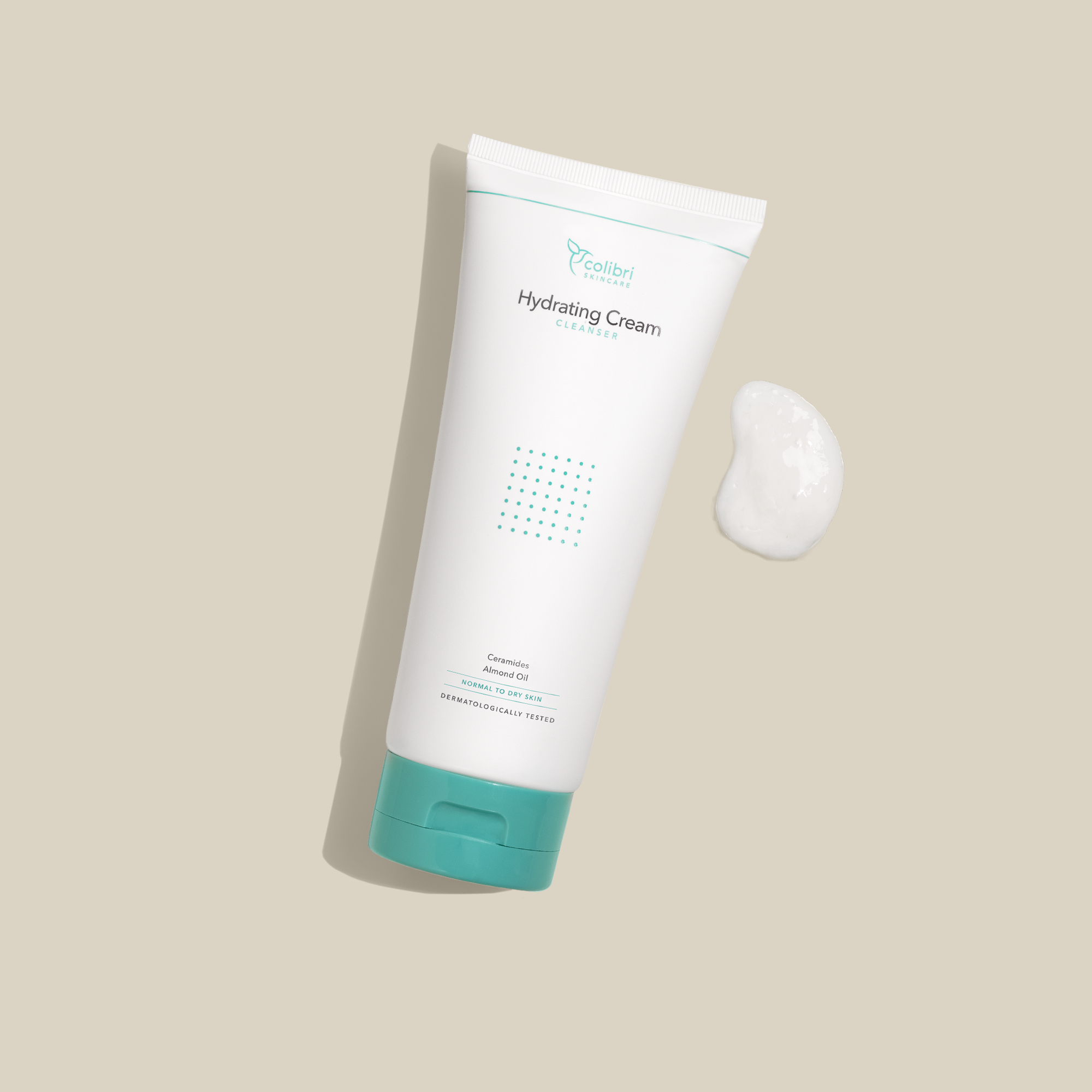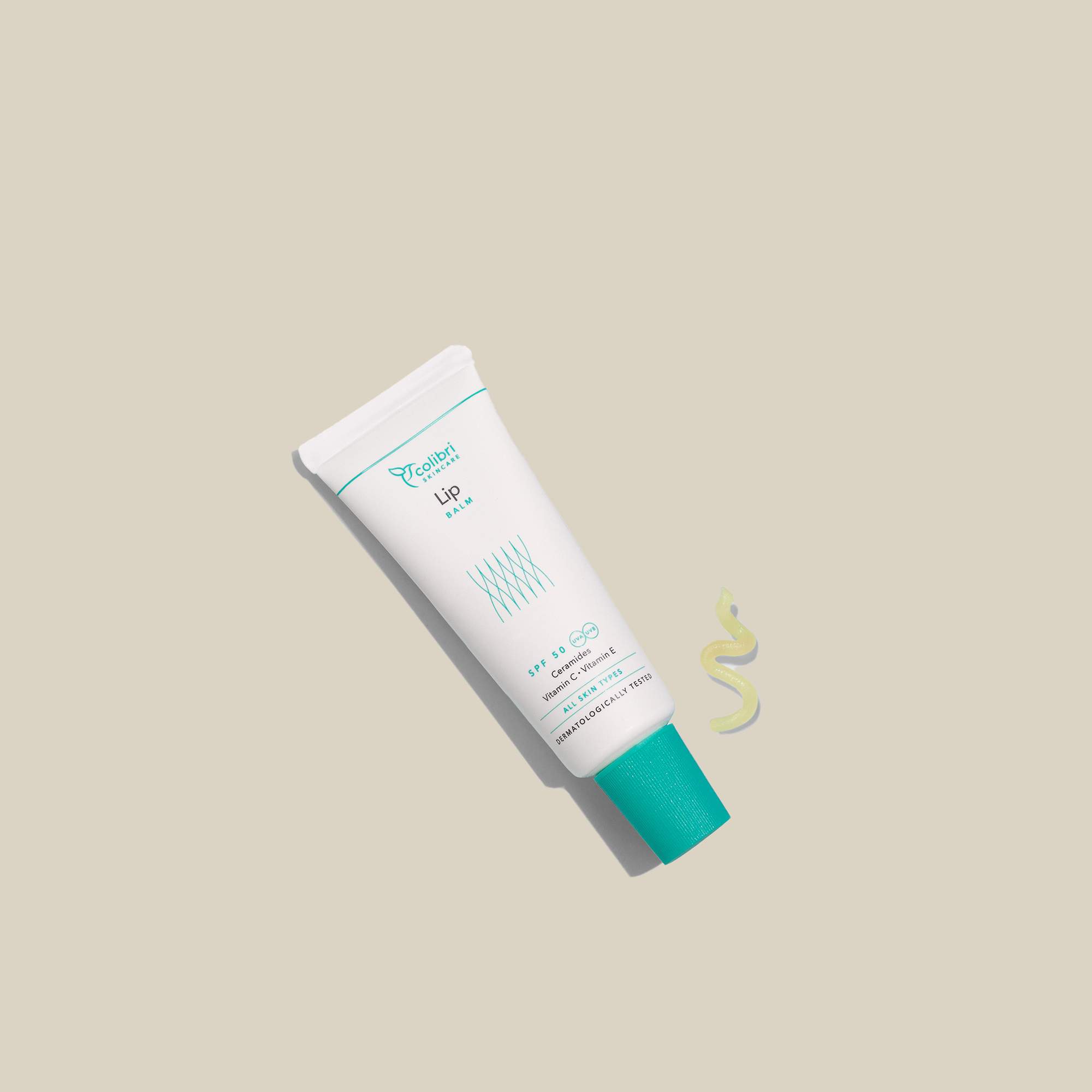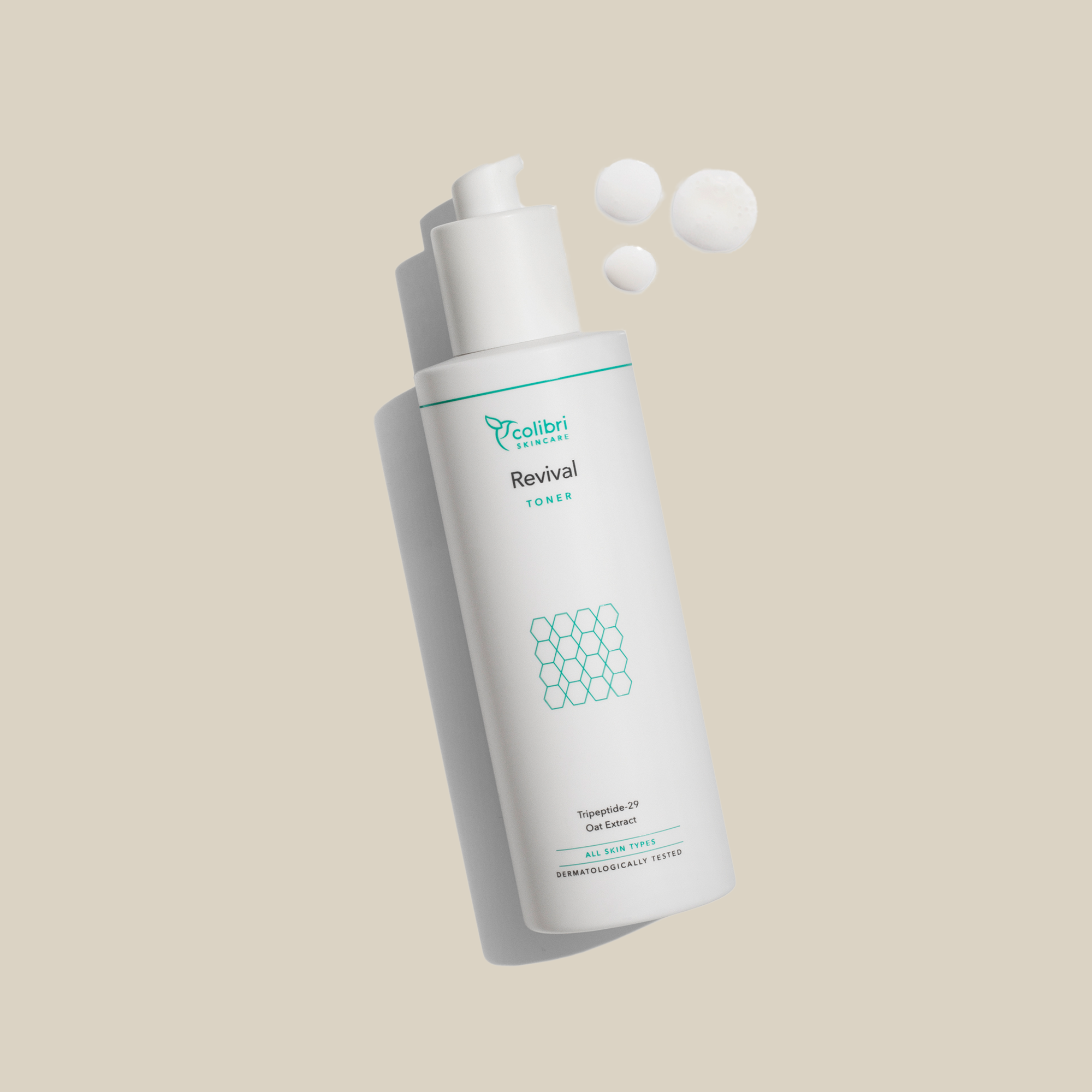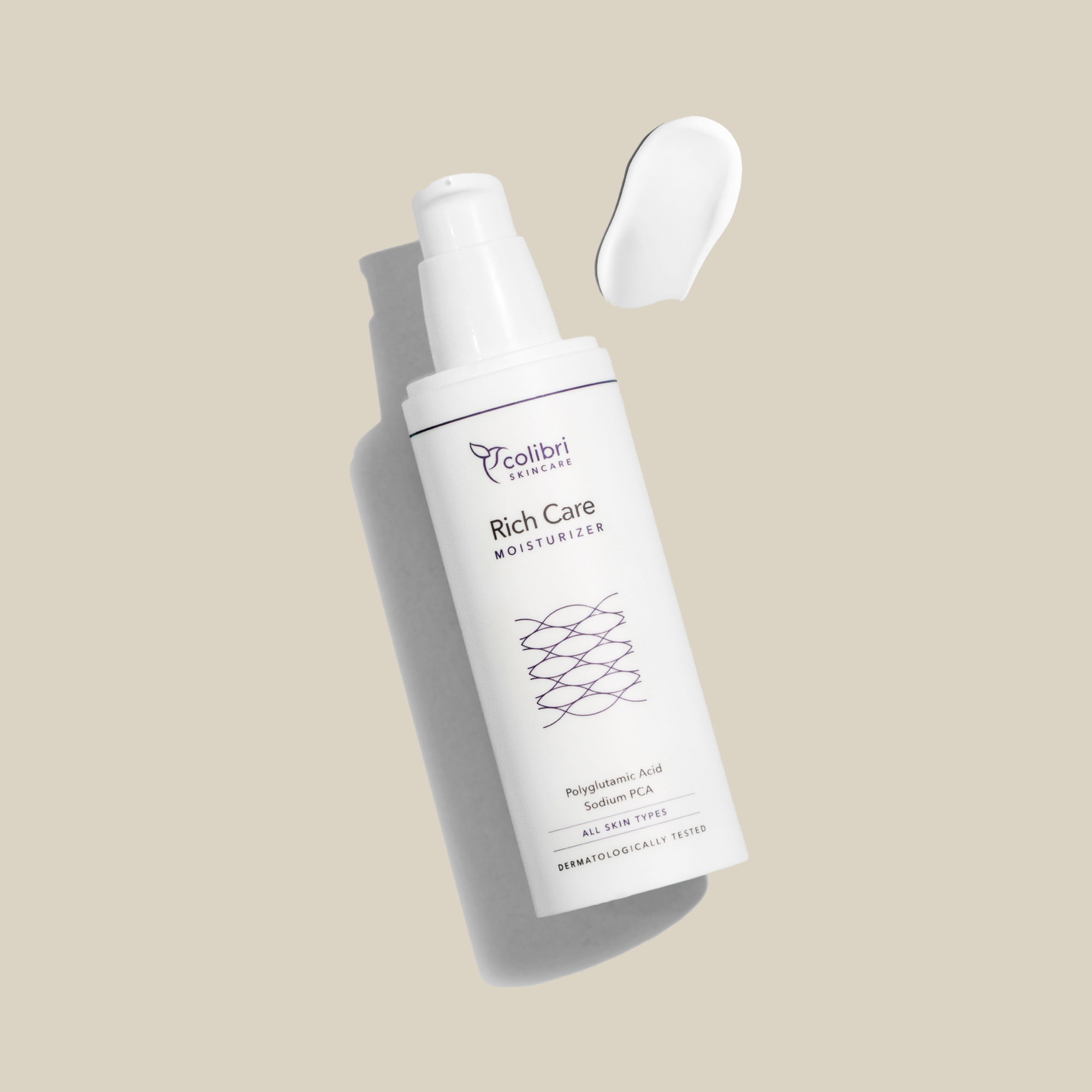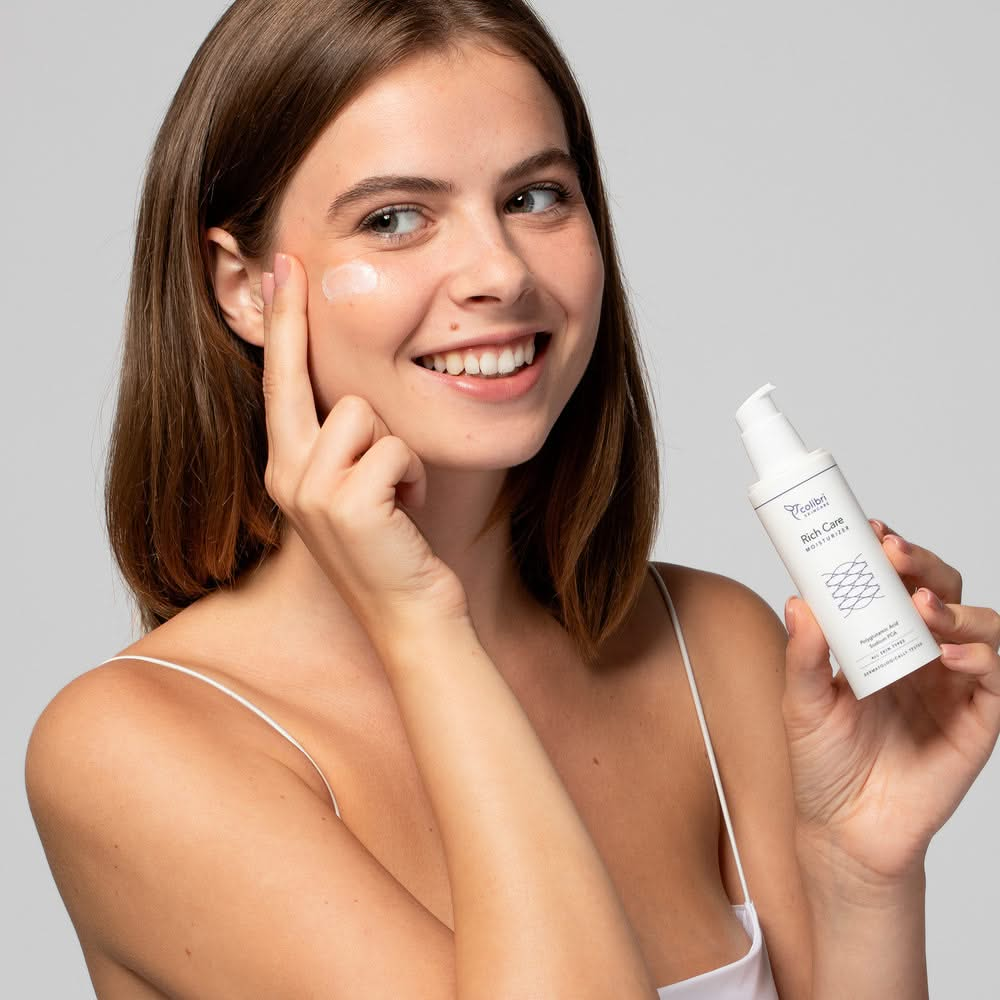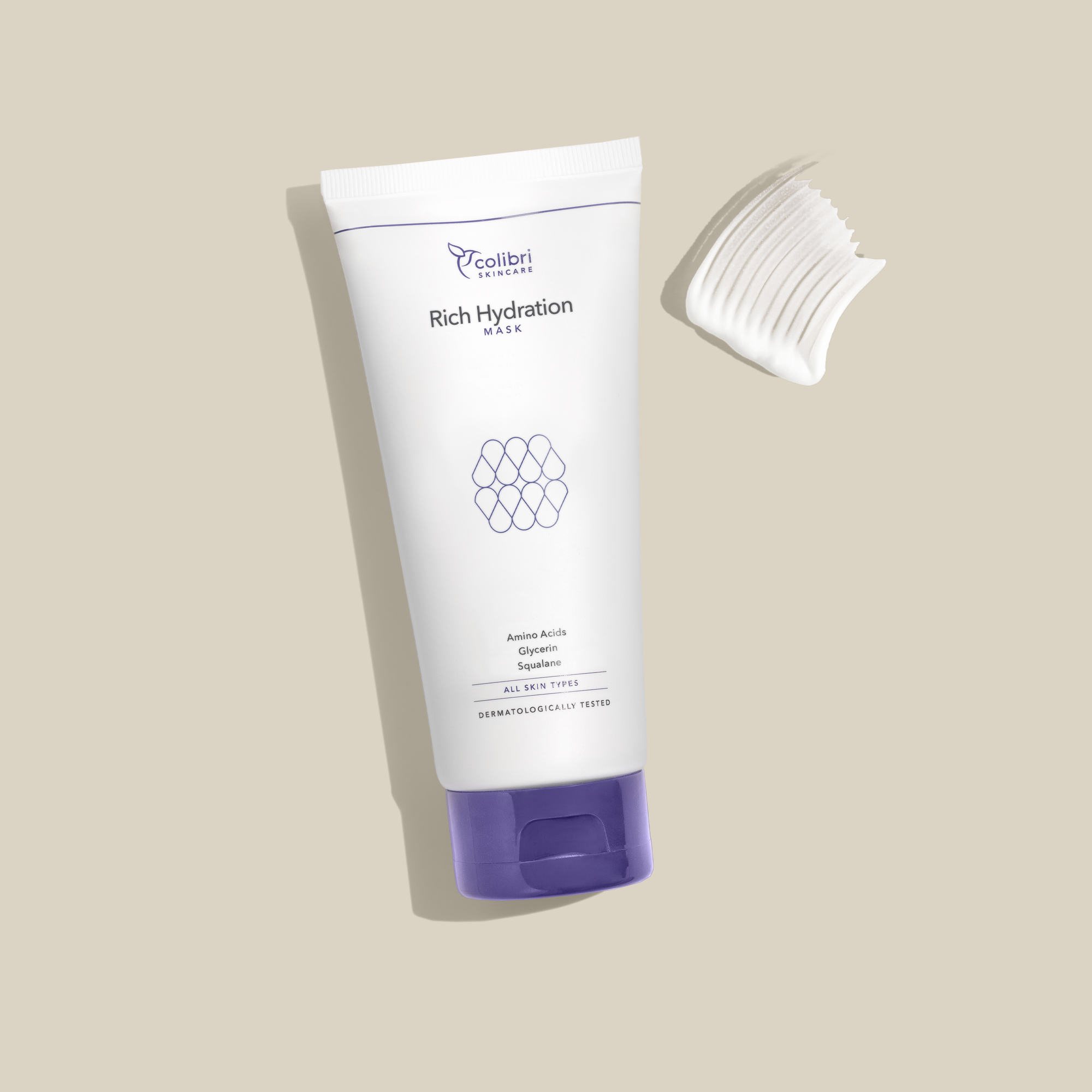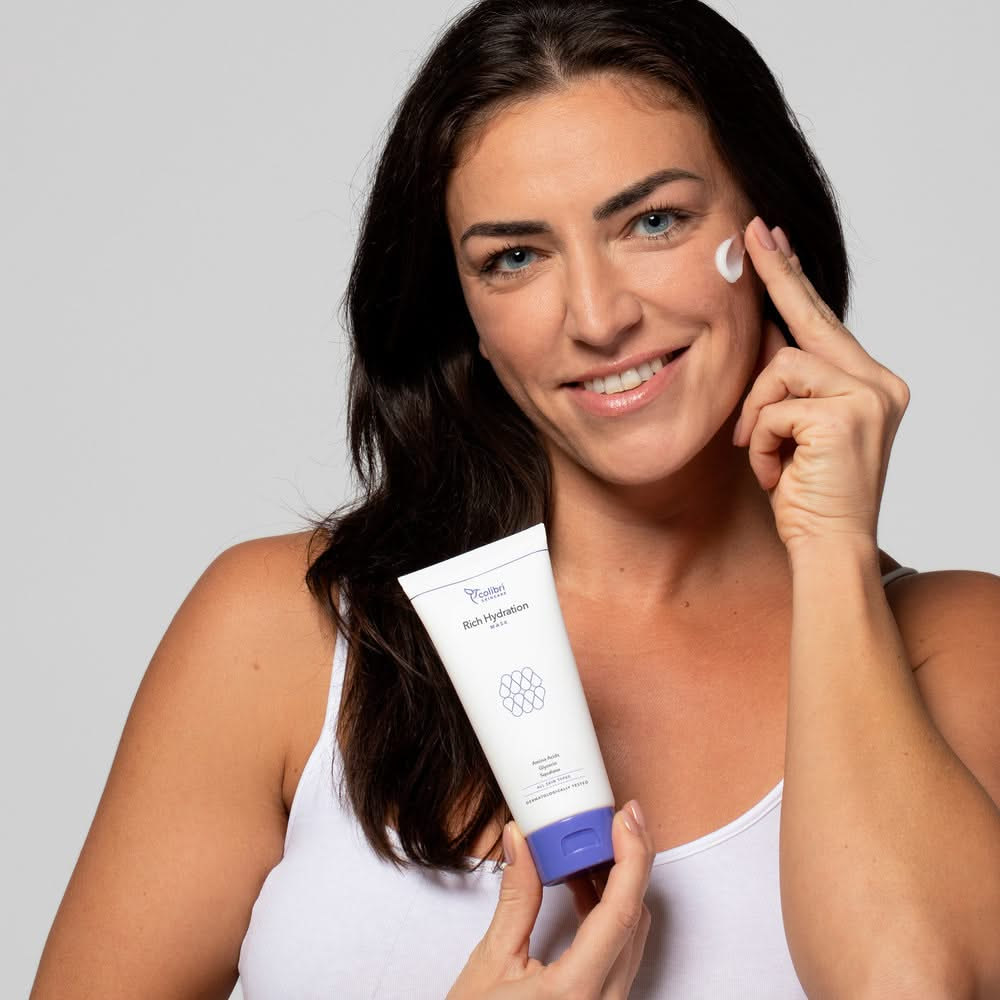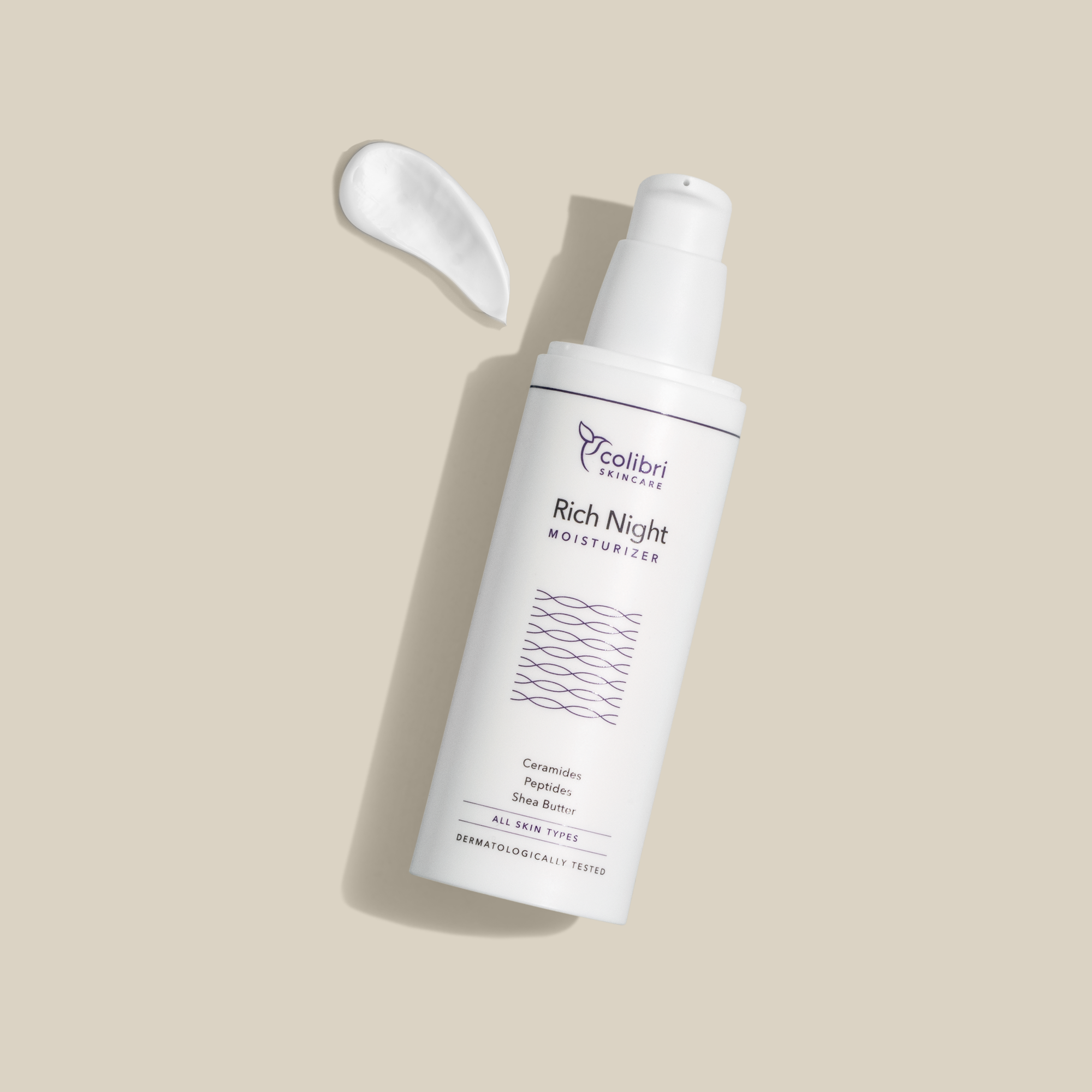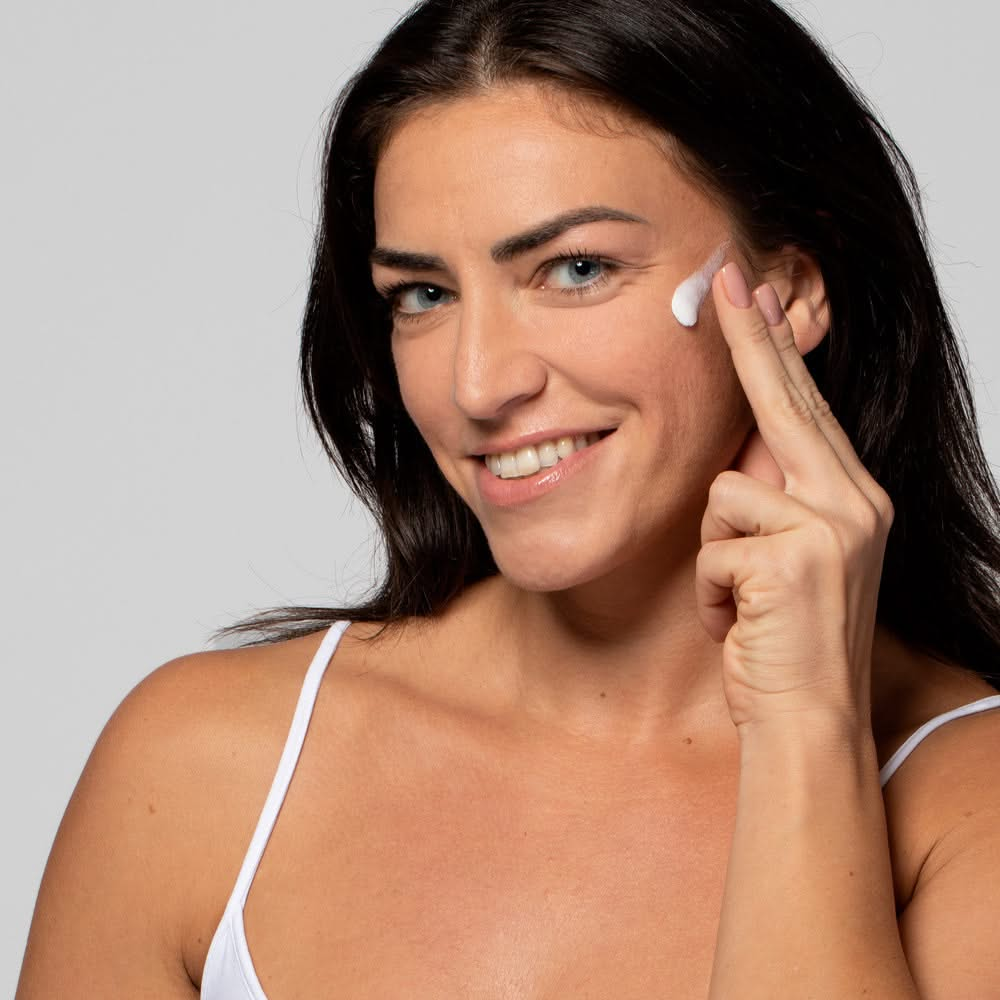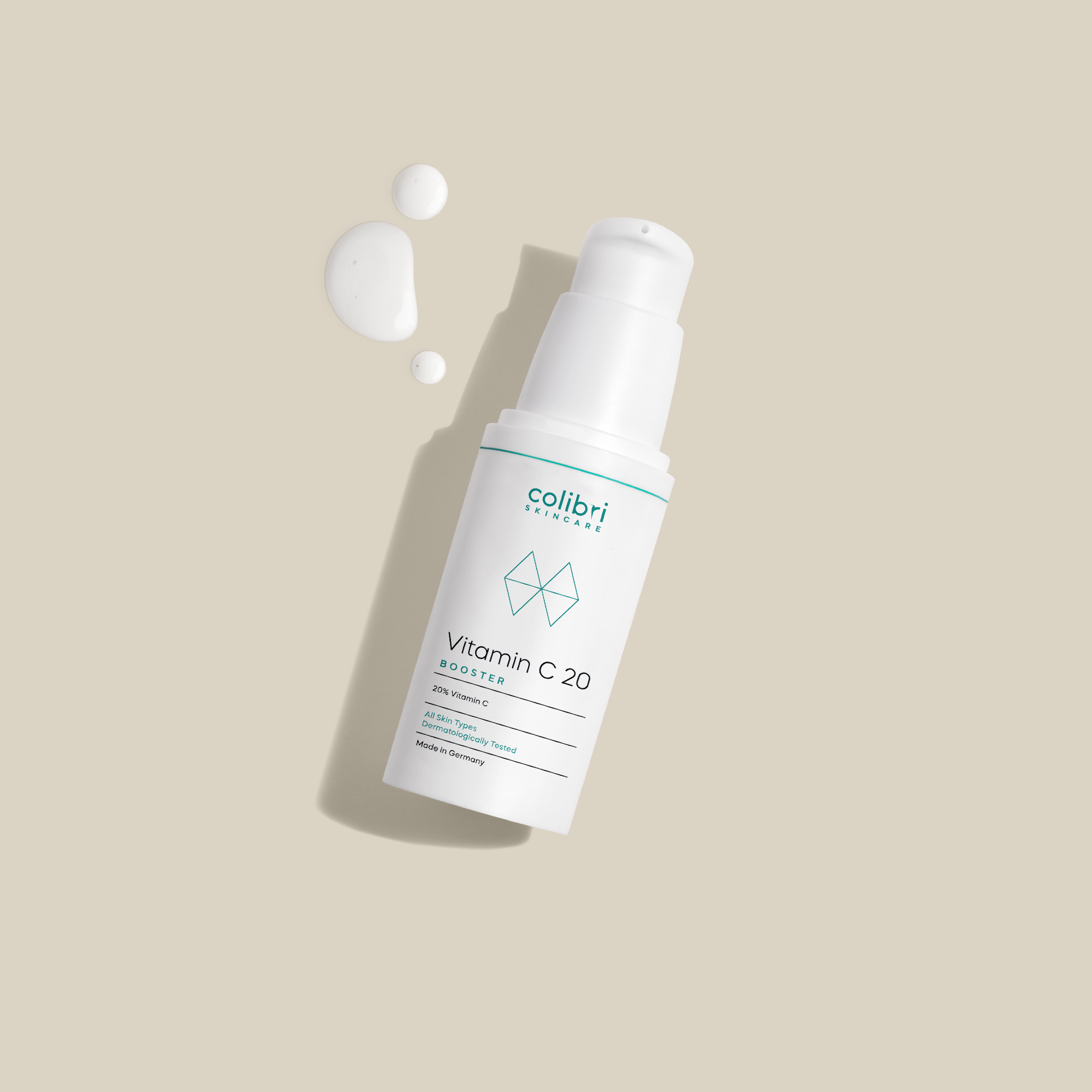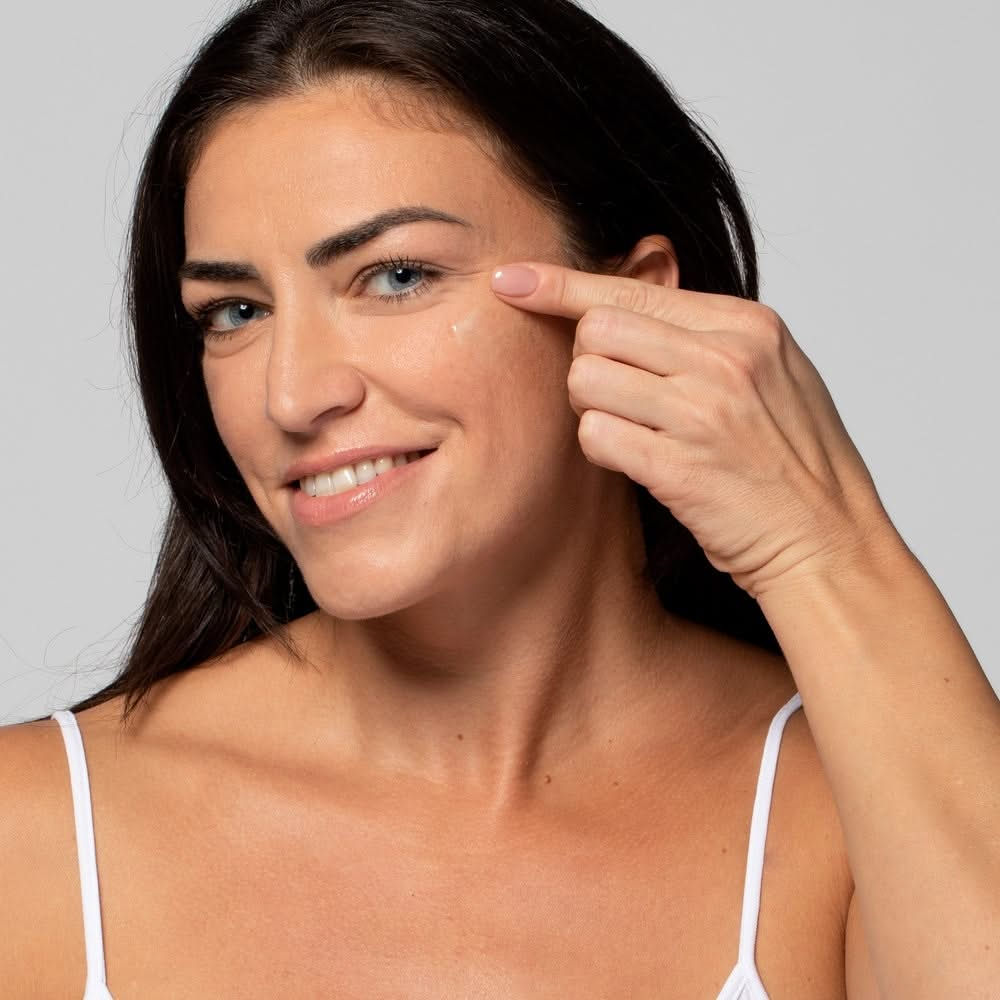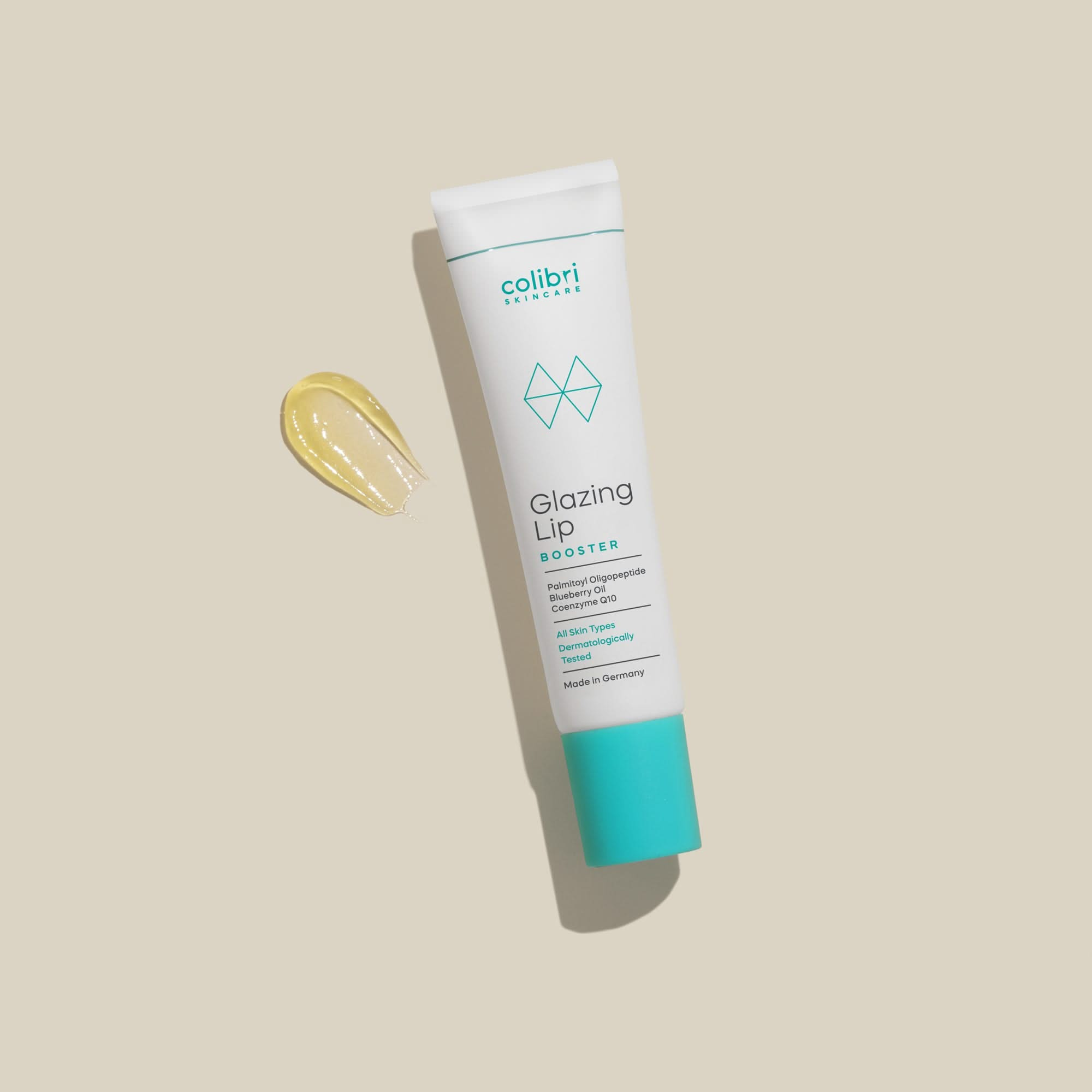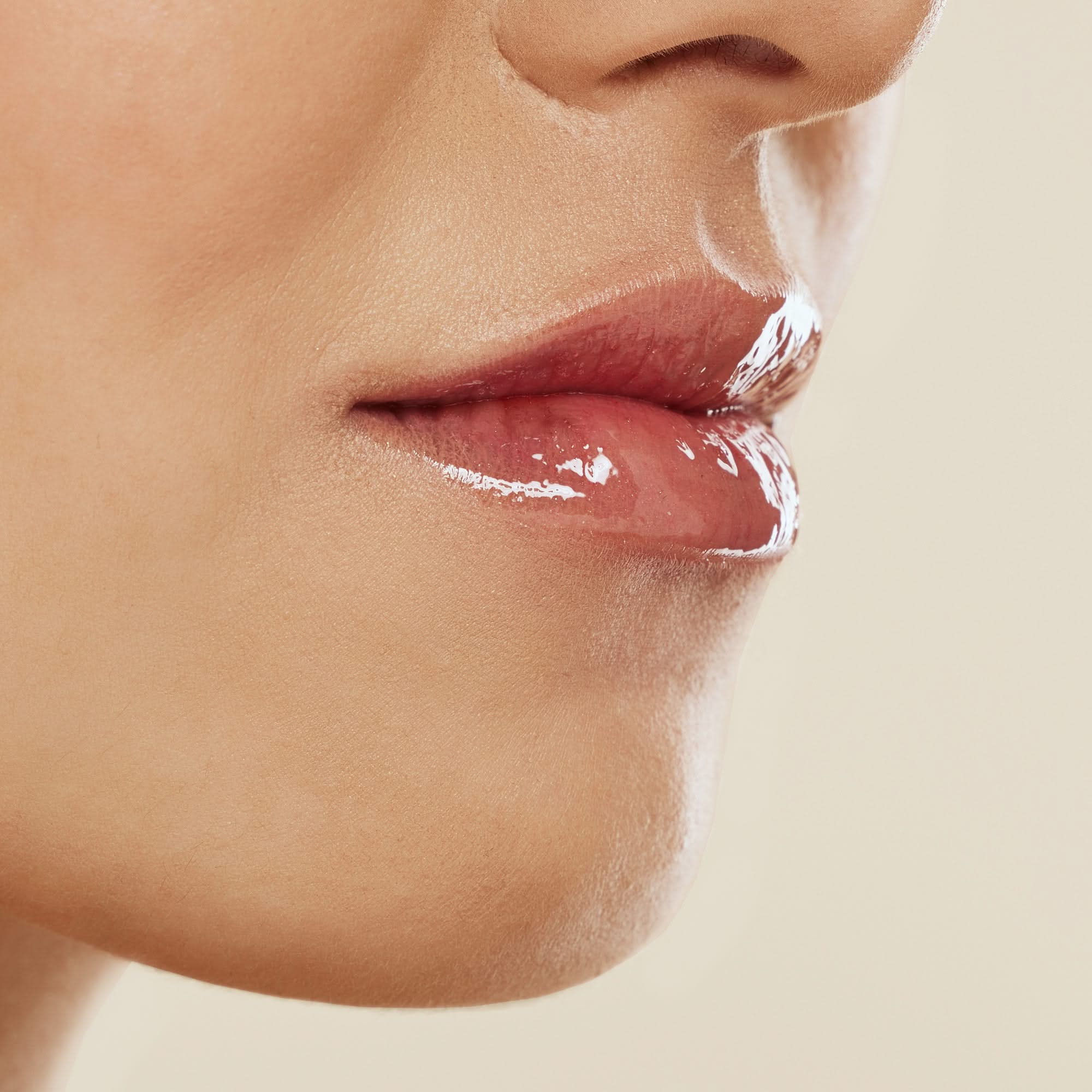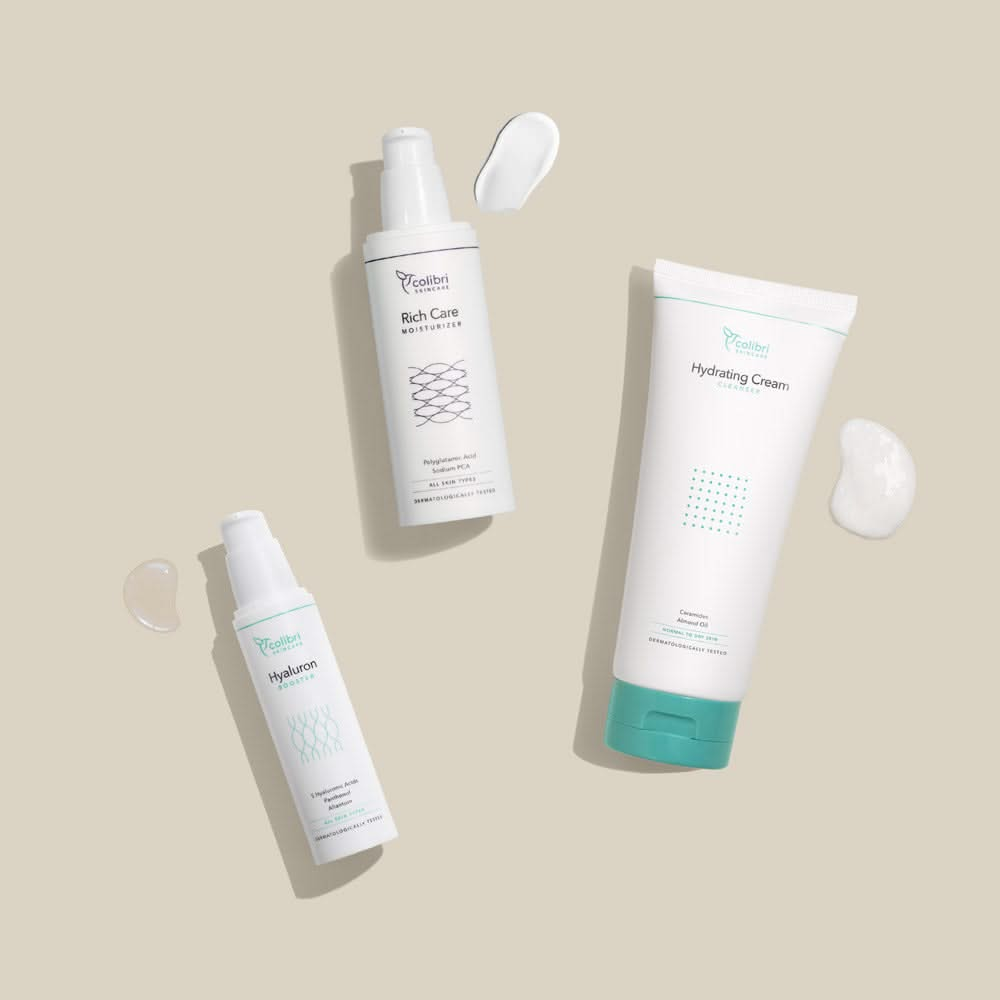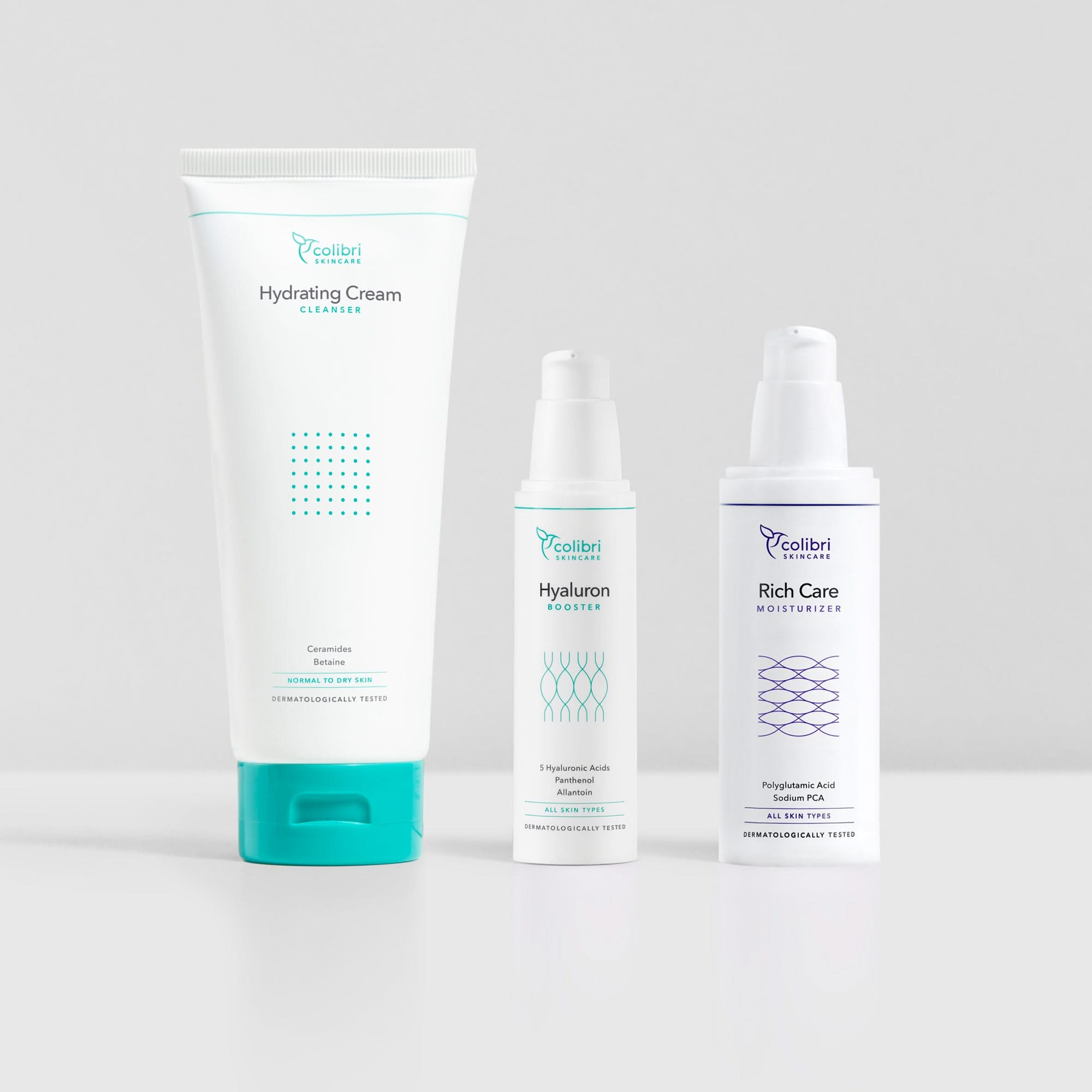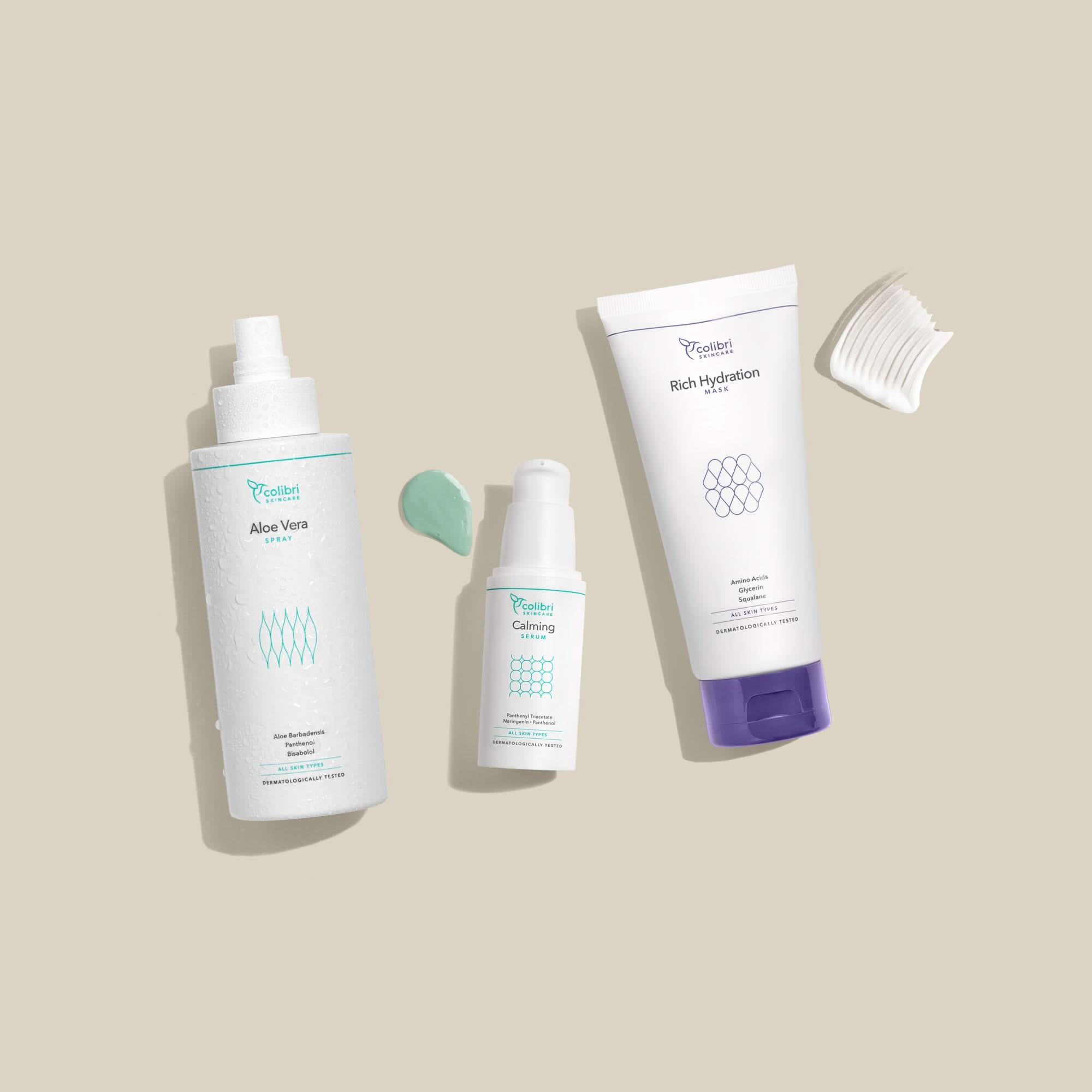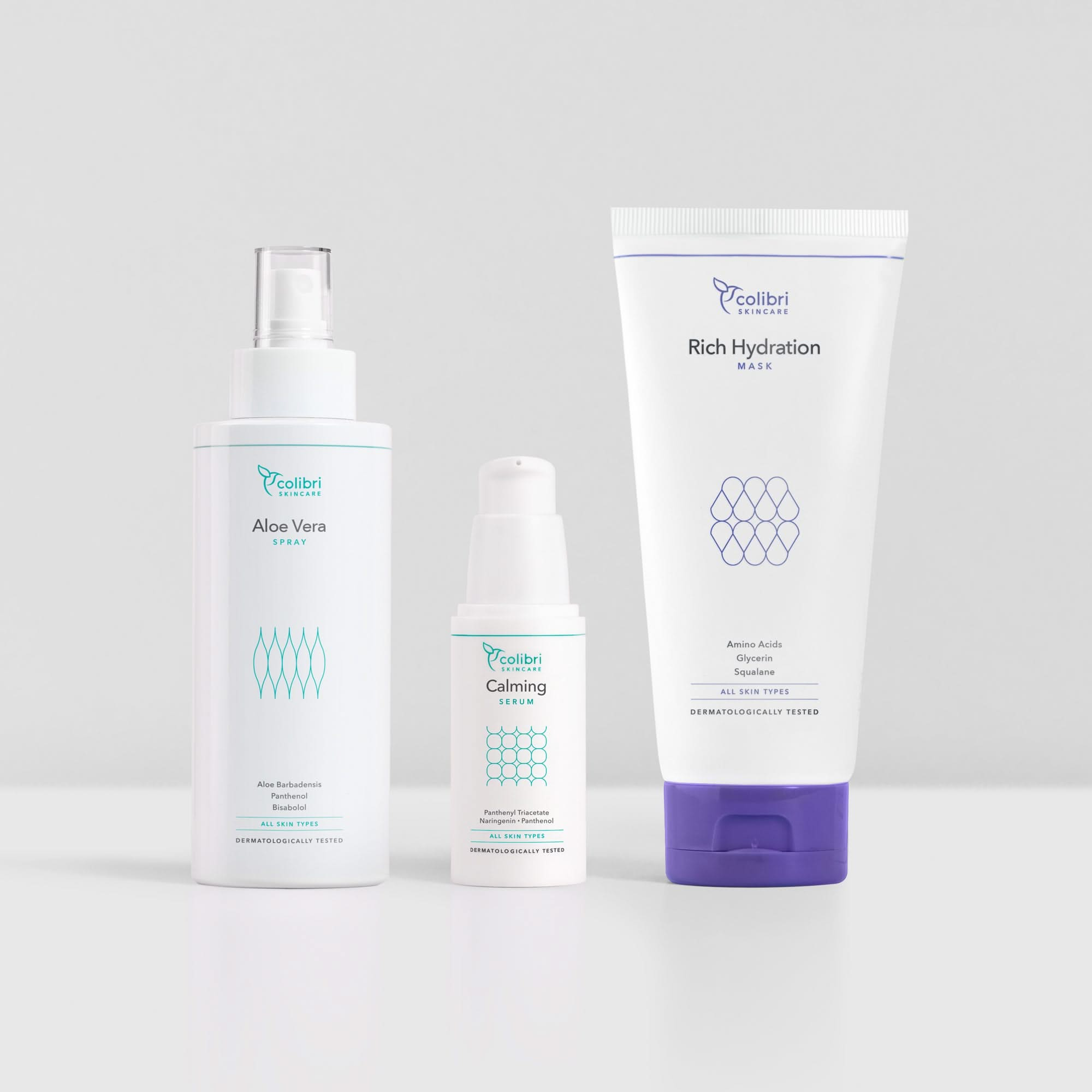Dehydrated or dry?
The main difference between dehydrated and dry skin is that dry skin is a permanent skin type, while dehydrated skin is a temporary condition that can affect any skin type. Typical symptoms of dry skin include roughness, flakiness, tightness, redness, itching, irritation, and fine lines. The skincare routine for dry skin focuses on restoring lipids in the skin barrier, using rich creams and oils to deeply nourish and prevent moisture loss. Regular application is key to achieving long-term improvement. For dehydrated skin, the focus is on providing moisture. Common symptoms include a tired and dull complexion, fine lines, tightness immediately after cleansing, and sometimes an oily appearance, as the skin compensates for moisture loss by overproducing sebum. Lightweight, water-based serums and hydrating gels are ideal for replenishing the skin's moisture reserves without adding weight. It’s essential to use hydrating ingredients that penetrate deeply into the skin.
Oily & dehydrated – find the balance
It can be confusing when oily skin also shows signs of dehydration. Especially the forehead, nose, and chin may appear shiny, while other areas feel flaky or tight. Although the skin looks oily, it feels uncomfortably taut and can quickly show fine lines and less radiance. Caring for oily, dehydrated skin requires a special balance, as it needs both hydration and sebum control. A mild, non-foaming cleanser that removes excess oil without drying out the skin is ideal. Hydrating toners, serums, and lightweight creams ensure your skin is optimally hydrated without looking greasy. Additionally, niacinamide can regulate sebum production and strengthen the skin barrier to minimize moisture loss. Treat yourself to a hydrating mask once or twice a week to give your skin an extra dose of moisture.
Dry & dehydrated – special needs
Dry, dehydrated skin is a common skin issue triggered by various internal and external factors. While dry skin is often genetically predisposed or aggravated by environmental factors, dehydrated skin results from a lack of moisture caused by insufficient hydration, improper care, or harmful environmental influences. Caring for dry, dehydrated skin presents a special challenge, as both moisture and lipid deficiencies need to be balanced. This requires a tailored skincare routine with specific ingredients that not only hydrate but also strengthen the skin barrier and restore the natural lipid layer. Hyaluronic acid, glycerin, and panthenol provide deep hydration, while ceramides, shea butter, and plant oils address lipid deficiency and reinforce the skin barrier. With the right care tailored to these needs, dry, dehydrated skin can become supple, healthy, and radiant again.


